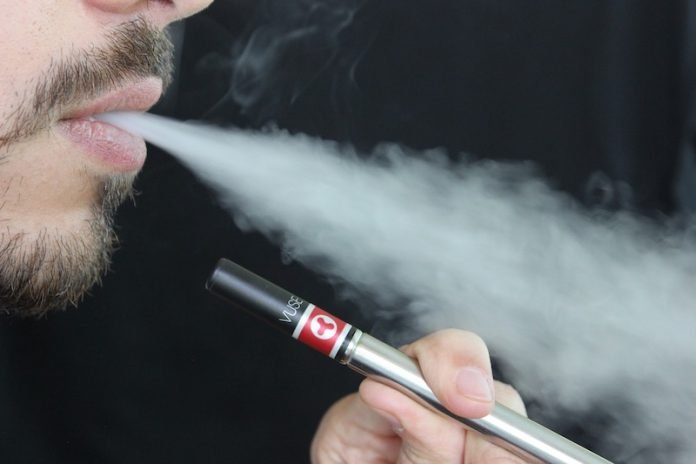
In a new study, researchers found e-cigarette (e-cig) use is rising at concerning levels among both smokers and non-smokers.
Even short-term e-cig use can cause cellular inflammation in never-smoker adults.
This is the first evidence of biological changes correlated with e-cig use in never-smokers
The research was conducted by a team from The Ohio State University Comprehensive Cancer Center and elsewhere.
Using a procedure called bronchoscopy to test for inflammation and smoking-related effects, the researchers report a measurable increase in inflammation after four weeks of e-cig use (without nicotine or flavors).
Although the magnitude of change was small compared with a control group, the data suggests that even short-term usage can result in inflammatory changes at a cellular level.
Inflammation from smoking is an important driver of lung cancer and other respiratory disease development.
The team says any level of cellular inflammation correlated with e-cig use is concerning because the biological and health effects of e-cig constituents such as propylene glycol and vegetable glycerine—while “generally regarded as safe” by the U.S. Food and Drug Administration (FDA) when used in foods and cosmetics—are unknown when heated and inhaled with e-cigs.
The implication of this study is that longer-term use, increased daily use and the addition of flavors and nicotine may promote additional inflammation.
The general perception among the public is that e-cigs are ‘safer’ than cigarettes. The reality is the industry is changing so fast ¬- and with minimal regulation—that usage is outpacing the rate of our scientific understanding.
It’s becoming a public health crisis we should all take very seriously from general pulmonary health, cancer risk, and addiction perspective.
E-cigs may be safer than smoking, but that is not the same as safe, and we need to know how unsafe they are.
With the recent reports of lung disease and deaths associated with vaping, the effects of vaping nicotine and marijuana oils make this research more critical.
The lead author of the study is Peter Shields, MD, deputy director of the OSUCCC.
The study is published in the journal Cancer Prevention Research.
Copyright © 2019 Knowridge Science Report. All rights reserved.



